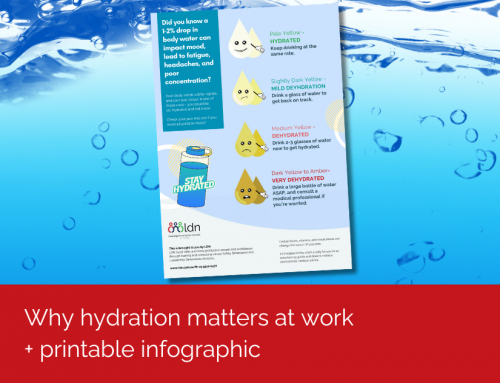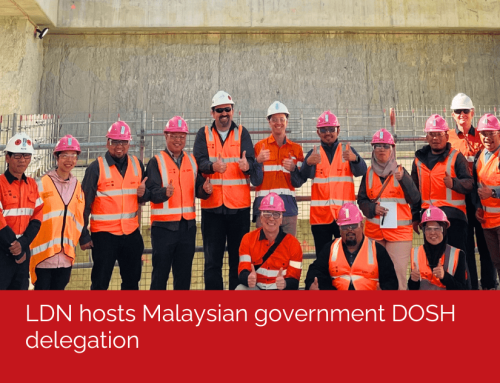
Are you looking to ensure safety, maintain compliance, and cultivate leadership within your organisation? Discover how customised training solutions do more than just meet compliance and safety standards—it can elevate your team’s performance and significantly impact your bottom line.
As organisations strive to enhance efficiency, ensure safety, and develop strong leadership skills, one of the most effective strategies is to implement customised training programs, specifically designed to the unique needs of your people, workplace, and industry. Unlike standard training modules that take a broad, one-size-fits-all approach, customised training aligns precisely with your industry standards, legal obligations, operational procedures, and the specific behavioural outcomes your organisation aims to achieve.
This personalised approach ensures a more effective and impactful and engaging learning experience, leading to improved safety standards, enhanced compliance, greater operational effectiveness, and a higher return on investment on your training.
Here’s why customised training not only meets your immediate needs but equips your organisation with the skills and knowledge to stay ahead in a competitive market.
Tailored to your industry and organisation
Every industry presents its unique challenges and risks, and similarly, each workplace comes with distinct needs, team dynamics, leadership styles, objectives, and overall goals. Whether your sector is construction, healthcare, mining, retail, or government, customised training programs are specifically designed to address the relevant needs of your sector, the nuances of your organisation, and the specific requirements of your team.
Tailored to the hearts and minds of your people
Training that is both relevant and targeted becomes even more effective when participants clearly understand the benefits for them personally. Creating a positive culture within an organisation requires more than just training people on implementing systems and processes, it’s about engaging the hearts and minds of every individual, regardless of their role, in taking ownership.
This clarity dramatically increases the likelihood that they will actively engage with the training content, which in turn directly enhances their safety, influences their behaviours, and improves operations.
Aligned with your specific legal obligations
Every workplace is required to comply with the Work Health and Safety Act, and certain industries have additional safety regulations and compliance requirements. How can employers ensure compliance if their workforce is not fully aware of their specific responsibilities? Customised training effectively bridges this gap by ensuring that all members of your organisation understand their obligations and know how to fulfill them.
This clarity not only ensures the safety of employees but also helps the organisation meet their legal obligations and minimise risks associated with potential legal consequences, financial penalties, and operational disruptions.
Integrated with your Standard Operating Procedures (SOPs)
Standard Operating Procedures (SOPs) are crucial for maintaining consistency and quality within an organisation. Customised training incorporates you procedures into the learning process, ensuring that training is not just theoretical but deeply embedded in the everyday activities of your staff. This helps employees understand how their actions align with broader organisational goals and ensures they are better equipped to apply their learning in real-world situations.
Focused on site-specific safety and efficiency
Every site has its unique layout, equipment, and potential hazards. Customised training can address site-specific elements by tailoring training modules to the exact environment in which employees will work. This approach reduces the risk of accidents and enhances overall efficiency by preparing employees to handle the specific challenges they will face on their job site.
Focused on enhancing leadership and cooperation
Customised training programs can be designed to nurture the specific leadership styles that align with your organisation’s culture, goals and expected behaviours. By focusing on real-life challenges and incorporating practical examples from within your organisation, customised training ensures that potential leaders are ready to guide their teams effectively under the unique circumstances of your business.
Additionally, training programs that are designed to facilitate activities and collaboration between people from different teams and functions help everyone synergise efforts across different departments, come up with new ideas and enhance overall organisational cohesion and effectiveness.
Tailored to clarifiy expected behaviours
Customised training also plays a pivotal role in defining and reinforcing the behaviours that your organisation expects from its employees. By creating clear expectations through training, organisations can cultivate a workplace culture that upholds values such as integrity, responsibility, and teamwork. This segment in a training program helps employees understand not only what they need to do but how they should conduct themselves in various situations, promoting a consistent and positive organisational culture.
Designed to achieve a higher ROI on your training investment
By tailoring your training programs to develop skills and knowledge relevant to your organisation’s specific needs, you maximise the benefit of every session and avoid the inefficiencies of generic training. When your training aligns closely with the actual demands of your workplace and the roles of your employees, you enhance competency and performance while improving long-term skill retention.
As a result, tailored programs yield a higher return on investment by boosting productivity, reducing the need for frequent retraining, and ultimately saving costs and enhancing operational efficiency.
By focusing on the specific needs and challenges of your organisation, customised training not only ensures compliance and safety but also fosters a culture of proactive leadership and collaboration can directly contribute to the operational effectiveness and strategic goals of your organisation.




